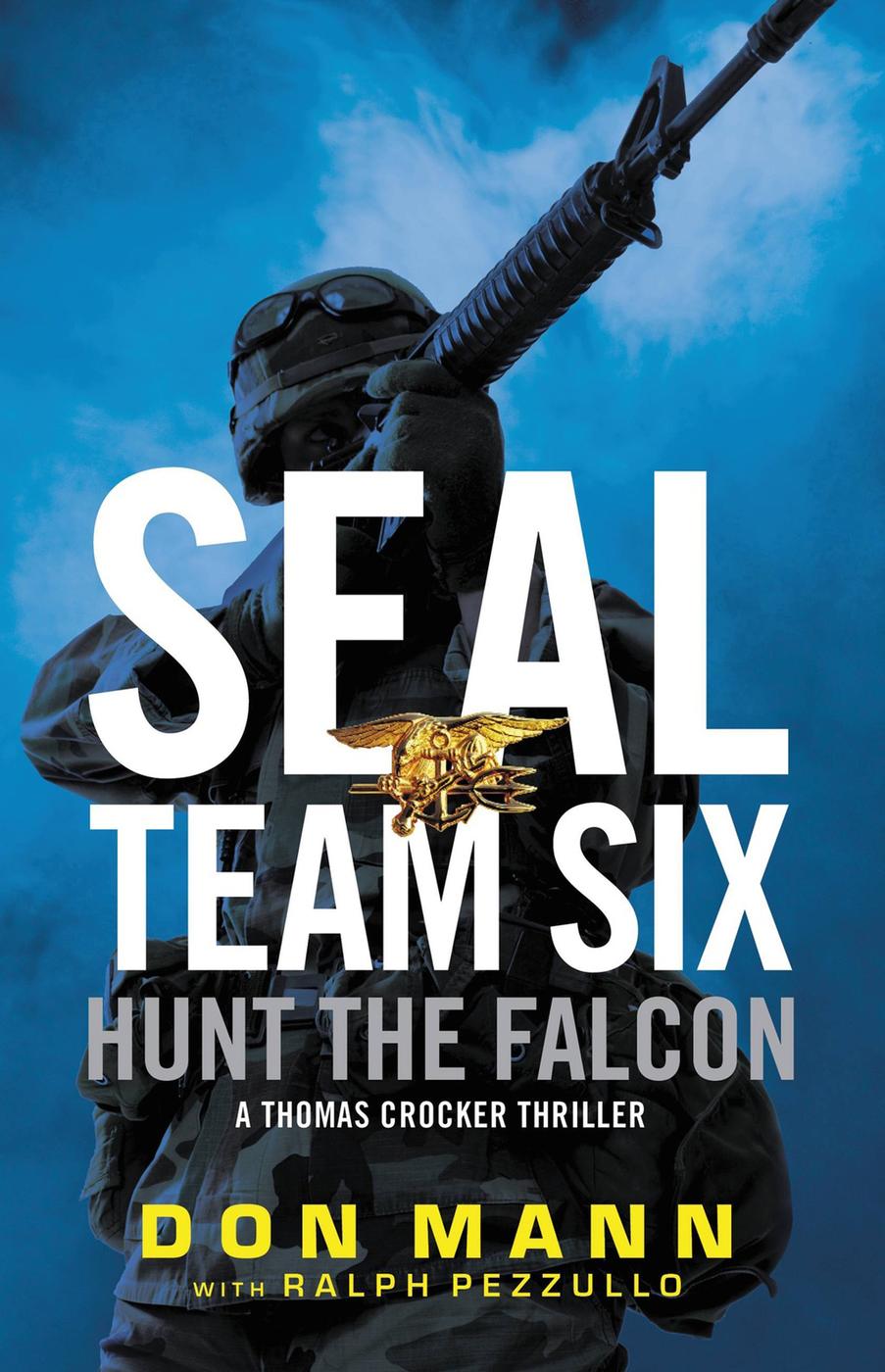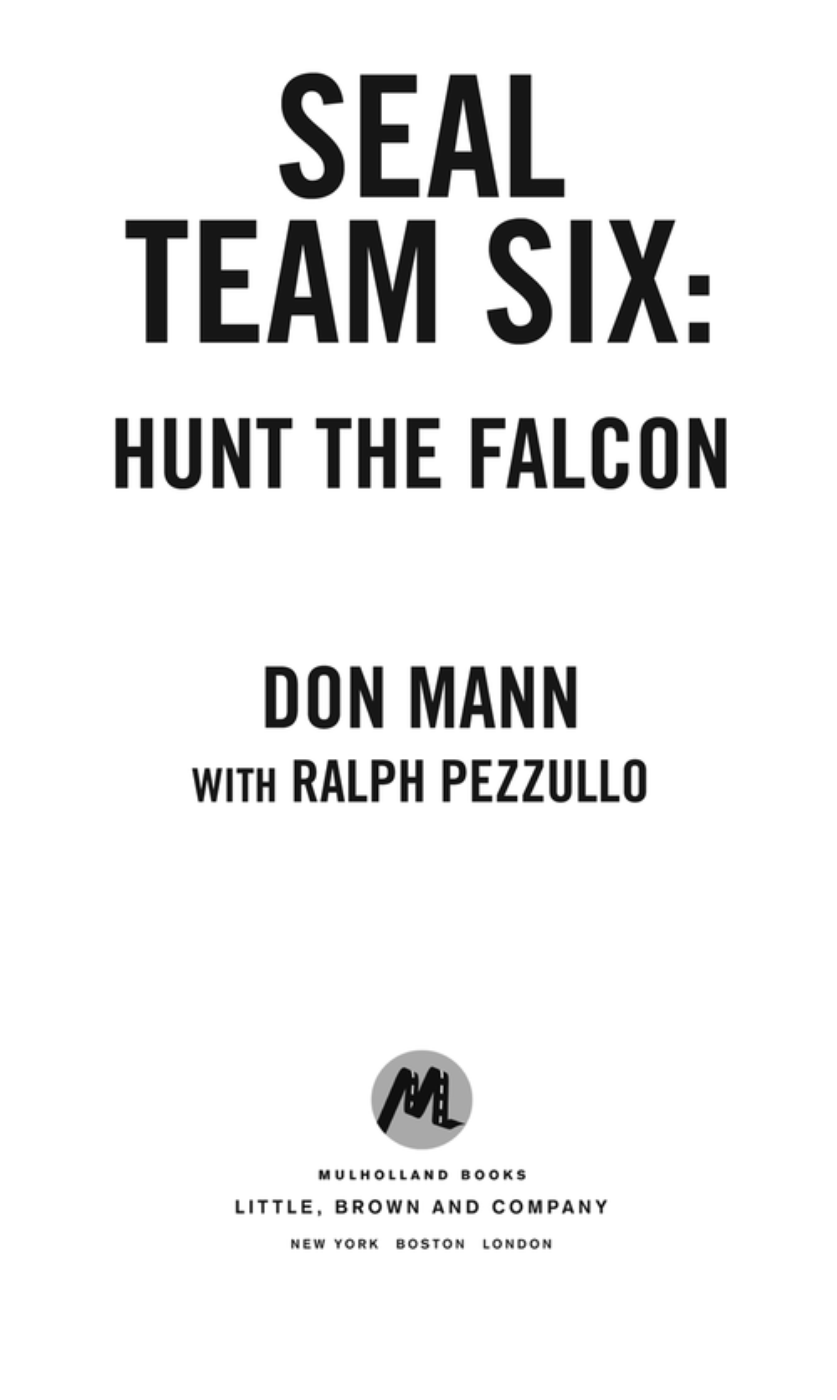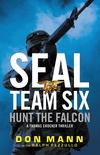Hunt the Falcon
Authors: Don Mann,Ralph Pezzullo




In accordance with the U.S. Copyright Act of 1976, the scanning, uploading, and electronic sharing of any part of this book without the permission of the publisher constitute unlawful piracy and theft of the author's intellectual property. If you would like to use material from the book (other than for review purposes), prior written permission must be obtained by contacting the publisher at [email protected]. Thank you for your support of the author's rights.
“We make war that we may live in peace.”
âAristotle
Â
To all servicemen, servicewomen, CIA employees,
and diplomats who have shed their blood
so the rest of us can live in peace
Let me not pray to be sheltered from dangers, but to be fearless in facing them.
âRabindranath Tagore
J
ohn and
Lenora Rinehart had just watched their thirteen-year-old son Alex dress himself for the first time. It was a special morning. Usually days at the Rinehart house started with a delicate dance, determined by their son's moods.
Just because his son Alex was autistic didn't mean he wasn't smart, John Rinehart reminded himself as his shoes met the uneven surface of the slate walk and he punched the electronic button that opened the door to his dark blue Saab 900. His son was exceptional in the IQ department. But his brain's ability to control the warp-speed flow of information, and his emotional impulses, was out of whack. When it didn't work the way Alex wanted it to, the boy got frustrated. And when he got frustrated, he got mad as hell. Screaming, beat-the-shit-out-of-whatever-he-could-get-his-hands-on angry sometimes.
Ask him to find the positive difference of the fourth power of two consecutive positive integers that must be divisible by one more than twice the larger integer? No problem. But little things like buttoning a shirt or fastening a zipper often tripped him up.
“Little thingsâ¦little victories,” forty-two-year-old John Rinehart said as he reached across the console between the front seats and squeezed his wife Lena's hand.
She smiled past the straight black bangs that almost brushed her eyes and said, “I credit Alex's new school. It's been a major positive.”
“Yes,” John whispered back. His heart felt like it might leap out of his chest with delight.
John felt things strongly. Like his son. Sometimes so strongly that it scared him and he, too, had to fight hard to control himself.
His half-Asian wife was the more emotionally balanced of the two. She understood that tomorrow morning might be completely different; that life with a child like Alex was unpredictable at best.
John found it much harder to let go of the hope that his son would one day lead a normal life. He kept looking for a path, or an unopened doorway in his son's psyche, that would lead to that result. Which made sense, because part of what he did for a living as the economic counselor at the U.S. embassy was to look for patterns of activity and use them to try to predict future eventsâChinese-Thai trade, baht volatility, Thai-U.S. trading algorithms.
He was a brilliant man who studied the world and saw tendencies, vectors, roads traveled, like the one he steered the highly polished car onto now, into the knot of cars, trucks, motorcycles, and bicycles on what the Thais called Thanon Phetchaburi.
He'd learned to expect the eight-mile ride to the embassy to take forty minutes because of the traffic, but he didn't mind. It gave him and his wife a chance to listen to music and spend some quiet time together.
This morning he didn't want to think about the embassy where she also worked, as an administrative assistant in the CIA station. Nor did he want to consider the problems he'd deal with when he got there.
Instead he listened as Stan Getz played a smooth, moving “Body and Soul” over the stereo, and he hummed along, feeling unusually optimistic and calm. He even entertained the possibility that when his tour in Thailand ended in a year, he would return to teaching. Maybe even accept the position on the faculty of University of California, Berkeley that had been offered him a little while back. Lena would like that.
The sky above was a murky, almost iridescent yellow. Bangkok was a surreal blend of staggeringly beautiful and disgusting, rich and poor, spiritual and depraved, all living pressed together. He found the yin-yang dynamic of the city fascinating.
Adjusting the air-conditioning, he turned to his wife. “I'm proud of you, darling,” he said.
“I'm proud of
you
. And Alex, too.”
“Our Alex,” he added.
Through the windshield John noticed a battered blue truck squeezing into the little space between his front bumper and the Nissan taxi four feet to the right. He applied the brake, hit the horn, then turned to his wife.
He noticed the way the light accentuated her cheekbones, then out of the corner of his right eye glimpsed a motorcycle near the back bumper. Two helmets, both black with mirrored visors. The driver and rider looked like aliens.
Past the soaring saxophone solo and through the soundproof door panels, he heard a metal click. Seconds later the motorcycle roared past, narrowly avoiding a bus.
He was thinking about the first time he had seen Lena, standing near the entrance to the Georgetown University library. She was a sophomore; he was pursuing a master's degree in economics.
He remembered how he had stopped to ask her for directions to White-Gravenor Hall even though he knew where it was. And how when she turned, he was struck by her beauty, and the strength and intelligence in her eyes.
John Rinehart opened his mouth to tell Lena how he had felt at that moment, how certain he had been that something important was happening. But before he could get the words out, the small but powerful explosive device that had been magnetically attached to the car's rear fender exploded, tearing through the chassis, igniting the high-octane fuel in the gas tank and causing the car to burst into flames.
John and Lenora Rinehart were dead within seconds. Another eight poor souls riding bicycles and motorbikes in the vicinity also died. Twenty-three were seriously injured.
Before Thai police officials had finished their inspection of the site and carted away the wreckage of the Saab 900, a similar magnetic device had killed a U.S. military attaché and his assistant in their car a half mile away. That same day bombs placed by riders on motorcycles killed fifteen more U.S. and Israeli officials in Rome, Athens, Mumbai, and Cairo.
The pain the bombings caused was incalculableâchildren denied fathers, wives turned into widows, friends and colleagues left questioning their faith in God.
Alex Rinehart, on hearing the news that his parents had been killed, retreated inside himself and refused to talk.
 Â
That night, 2,410 miles northwest of Bangkok, Navy SEAL Team Six leader Thomas Crocker wiped the snow from the goggles fastened to his FAST Ballistic Helmet and adjusted the seventy-five-pound pack on his back.
“This remind you of anything, boss?” his blond commo man, Davis, asked in a gravelly voice behind him, little icicles clinging to the half-inch reddish growth on his jaw and chin.
“
The Nightmare Before Christmas
?” Crocker replied as he retaped the straps on his backpack so they wouldn't make noise as he approached the target. His left hand burned from a frigid wind that whistled through the craggy rocks along the ridge in southeastern Afghanistan.
“K2,” Davis said, referring to a training climb Crocker had taken the team on, during which a female friend of his had died in an avalanche. Then, noticing that his chief's left hand was bare, he asked, “What happened to your glove?”
“Lost it attending to Dog.” Dog, a.k.a. Timothy L. Douglas, was the new guy who had just completed Green Team. He trudged ahead of them favoring his left leg and carrying “the pig”âSEALspeak for the MK43 Mod 0 machine gun, which Crocker preferred to call “the nasty.”
Dog, a former middle linebacker at the University of Tennessee, had slipped about a half mile back as they were climbing and ripped a foot-long gash in his right thigh, which Crocker had bandaged up.
“I got a spare pair,” Davis said, white fog shooting from his mouth and mixing with the condensation around them. He removed a pair of black cold-weather gloves from his drop leg pouch and handed them to Crocker.
“Colder than a witch's tit,” the team leader groaned, shaking his exposed hand to keep the blood moving, then slipping them on. “Thanks.”
He was leading twelve men, all SEALs from Team Six, who had been at Jalalabad Airfield chilling, listening to music, playing video games, reading, sleeping, shooting the shit, when the urgent message came over the radio that Observation Post Memphis (OPM) was under attack. Two things made this significant and alarming: One, the difficulty of the terrain in the middle of the Hindu Kush range combined with the blizzard made it impossible to reinforce the post by air or provide it with any sort of air support. People who had been to OPM referred to it as being “on the dark side of the moon.” And two, five operators from Six had been dispatched to the post a week earlier and were now trapped and fighting for their lives, along with a dozen marines, several national guardsmen from Pennsylvania, and a platoon of soldiers from the U.S. Army's 17th Infantry Alpha Company.
As a general rule, when teammates are under attack, you don't sit back at base with your thumb up your ass.
Adding to Crocker's sense of duty was the fact that one of the Team Six operators fighting for his life in OPM was his running partner Neal Staffordâa former cowboy from Waco, Texas, with two wild young boys and a lovely wife named Alyssa, who was the best friend of Crocker's wife, Holly. Crocker's teenage daughter Jenny babysat for their kids.
All of this explained why Crocker had sought out the one helicopter pilot from the 160th Special Operations Aviation Regiment (SOAR) who was crazy enough to brave the fifty-mile-an-hour gusts and drop them off as high up the mountain as possible, and why they had slowly been picking their way through the snow, ice, and rocks like goats. The 160th SOAR was also known as the Night Stalkers. Their motto: Night Stalkers don't quit.
Coming up the other sideâthe east sideâwas out of the question, since the whole Kunar Valley, and most of Nuristan Province, was firmly under Taliban control, and had been for over a year. Most Americans weren't aware that this part of Afghanistan was called the Islamic Emirate of Afghanistan and flew a white flag with a mujahideen call-to-arms slogan scrawled on it.
Which begged the question Crocker had been asking himself for hours: what the fuck was OPM doing there in the first place? Someone in Jalalabad had told him that a general had it built to monitor traffic along one of the most important access roads to Kabul. Another person had told him that Iranians had been seen in the area.
Was OPM monitoring the movement of arms, heroin, Taliban fighters? Where was that general now? Sitting in some warm room with his feet up watching college football?
Crocker stopped himself. It didn't matter now. All he cared about were the lives of the SEALs and other soldiers trapped at OPM, and helping to fight back the Taliban assault until the storm abated and rescue helicopters could pull them out.
Judging from the unrelenting ferocity of the storm, that might be a while.
Crocker held up his right fist, indicating to the men that he wanted them to huddle around him. Facing him were twelve grizzled faces caked with ice and snow. Aside from his core five, which included Davis (commo), Ritchie (demolitions), Mancini (equipment and weapons), Cal (sniper), and Akil (maps and logistics), there were machine gunners Dog and Yale, Gabe, Langer, Jake, Chauncey, and Phillips.
“How you doing, Dog?” Crocker asked over the muffled sounds of warfare echoing up from the other side of the mountain.
“Hurtin' a little and embarrassed, but ready to kick some ass.”
“I like that attitude.”
As long as Dog was physically and mentally strong enough to set up and operate the twenty-pound, gas-operated, belt-fed, air-cooled killing machine (capable of firing as many as fourteen 7.62 caliber rounds per second) he cradled in his arms, Crocker didn't care how much discomfort he was in. To his mind, pain was weakness leaving the body.
“Refuel. Rehydrate,” Crocker barked. “In a few minutes we're gonna reach the top of this ice cube and enter the shit. I want us all to stick together until I say otherwise. Maintain three-sixty security. Visibility is terrible. I don't want us shooting at one another. Any questions? Any problems?”
Several of the SEALs shook their heads.
Cal, the sniper, spoke up. “This peashooter ain't gonna do a whole lot of good in this weather, boss,” he said, slapping the MK11 Mod 0 sniper weapons system he carried slung across his back.
“Manny's got an extra MP7. He'll lend it to you. Right, Manny?”
“A round of beers at the Guadalajara when we get back,” Mancini said. The Guadalajara was a popular watering hole close to the SEAL base in Virginia Beach.
“With nachos,” Ritchie added.
Crocker said, “Davis, call the post commander. Tell him we're approaching from the northwest ridge.”
A marine corporal back at Jalalabad had explained to him that the only possible land approach to OPM was along the northwest ridge, then down rope ladders that had been rigged along the rocks that formed the back wall of the base.
“Roger, boss,” Davis responded.
Guys squeezed energy gel into their mouths, wolfed down energy bars, and gulped water from their CamelBaks. Crocker checked his Garmin 450t GPS with a preloaded 3-D map of the area and confirmed that they were within four hundred yards of the observation post. Visibility was so bad he couldn't see more than four feet ahead.
Davis pointed at him, and seconds later a transmission from the marine major in charge of OPM blared through the F3 radio transmitter in Crocker's helmet.
“Tango-six-two, this is Memphis-five-central. I thank the Holy Father for your assistance. Condition double-red here. Need medevac, immediate support. Taking heavy casualties. Two of our guard stations have already been overrun!”
Crocker thought it was both strange and alarming that Neal Stafford was at the post. Last time he had seen him he was halfway around the world, tossing a miniature football to his two young sons on the front lawn of his house in Virginia. Now, as he considered how Neal's safety might affect Neal's family and the tender network of relationships and emotions that connected Neal's life to his own, he felt a responsibility to get him out of OPM unharmed.
